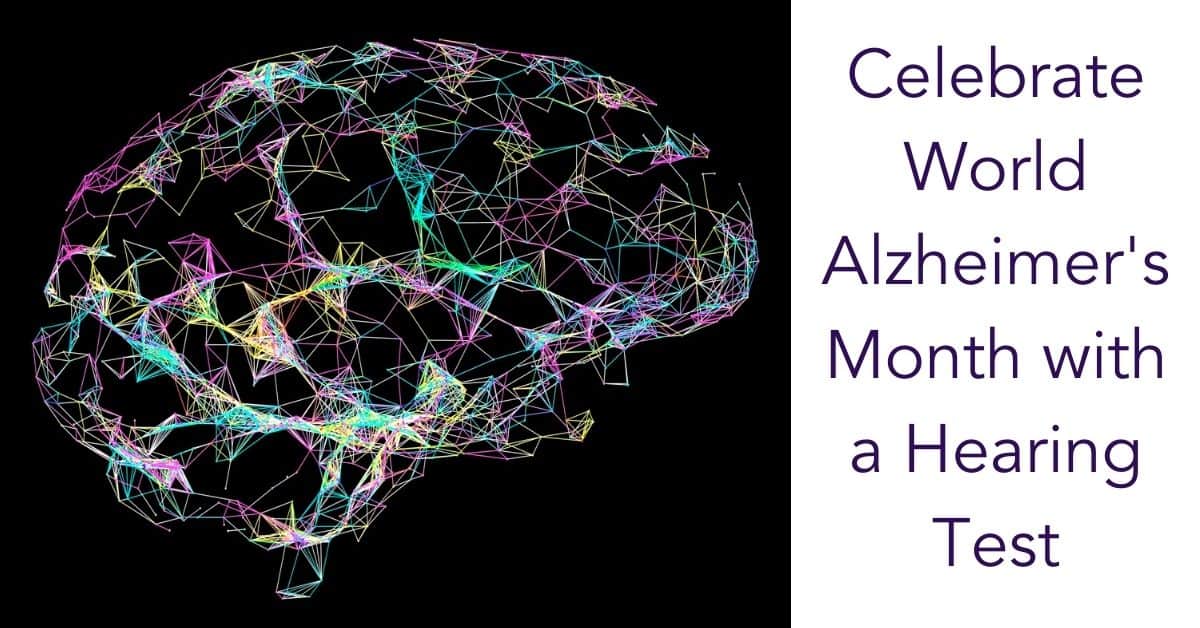- The Impact of Hearing Aids on Veterans’ Lives - February 15, 2024
- Hearing Health: A New Year’s Resolution for a Vibrant Life - January 16, 2024
- Unraveling Misconceptions About Hearing Loss - December 12, 2023
As we know, Alzheimer’s disease, along with other forms of dementia, afflict nearly 50 million people worldwide, leading to cognitive decline, memory loss, and eventual disorientation from the world. Without a cure, many have a sense of hopelessness when it comes to these conditions. This month comes as a challenge to truly celebrate the successes that have been made in research on Alzheimer’s disease and other forms of dementia.
Analysis of the factors contributing to risk as well as potential ways to slow the decline of cognitive functioning are truly remarkable leaps forward in our understanding of the conditions and worthy of celebration! As well, we can take this opportunity to honor the work, patience, and fortitude of those people who care for people with Alzheimer’s disease and other forms of dementia. Family members and professional caregivers alike work through the daily struggles presenting themselves to a person with dementia, sometimes requiring constant support. These people deserve our celebration of their caregiving, as well!
One way to honor the researchers and caregivers who support Alzheimer’s patients is to consider recent findings on risk factors. Indeed, recent studies have not discovered a cure, but they have unearthed some of the lifestyle and demographic characteristics that make Alzheimer’s disease and other forms of dementia more likely.
What are the risk factors for developing Alzheimer’s disease?
Although researchers continue to seek a cure for those who already have Alzheimer’s disease and other forms of dementia, they have already begun to understand the complex nexus of factors that can lead to a higher likelihood of a person developing these conditions.
The factors leading to higher incidence of Alzheimer’s and dementia begin as early as childhood with access to education. Those with lower levels of childhood education have higher rates of dementia later in life. Although there is nothing to be done at the individual level to change this risk factor, at the social level this can be understood as yet another reason to promote better education throughout the world.
The individual ability to change risk factors really comes into play in midlife. Such behaviors as smoking and excessive alcohol consumption both lead to higher rates of dementia at the population level, so this finding is yet another reason to pursue smoking cessation and reduced alcohol consumption.
Other risk factors have to do with health conditions. Hypertension, diabetes, and obesity are conditions that correlate with higher rates of dementia. Treatment regimens are available for each of these, with the possibility of reducing risk of dementia later in life. Later in life, one of the most fascinating recent findings in dementia research is a connection with air pollution. Those who live in heavily polluted areas, controlling for other factors, tend to have higher rates of dementia, as well.
How is Hearing Loss Connected to Alzheimer’s disease?
Among the many conditions related to rates of Alzheimer’s disease, untreated hearing loss has been discovered as a risk factor. How could two seemingly unrelated conditions be connected in this way?
Researchers are continuing to study this connection, but it seems to be rooted in the way the brain processes spoken language. When you are listening to a conversation, your brain is working like a complex machine to gather audible information and to turn it into meaningful information. When a person has trouble hearing, the brain kicks into overdrive, attempting to synthesize various bits of speech into understandable language.
This struggle to put together a puzzle seems to create an unbearable cognitive load for the mind, and researchers wonder if this overload can lead to Alzheimer’s disease and other forms of dementia, as well.
For this reason, it is essential to get a hearing test as soon as you sense that hearing loss might be a problem for you. The longer you wait to get treatment, the longer your brain has to struggle to make sense of the world, and the lasting effects on your cognition should not be taken lightly. Contact us today to schedule an appointment for a hearing test during World Alzheimer’s Month!

